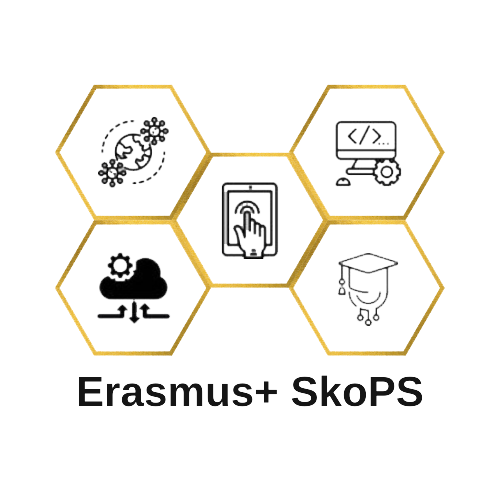About the meeting
The Summary of the Meeting
The second transnational meeting “Project Annual Progress Report and Course Development Meetings” was held in a blended format (online and physical) in Alicante, Spain, with the blended participation of all partners on June 2nd and 3rd 2022. UA was the responsible organization and host. In this meeting, the consortium reviewed the overall status and quality of the project implementation during the first project year. Also, the state of development of the course materials (Intellectual Outputs), and the methodologies used for the course development (which have also been published as an article in EDULearn conference 2022) were reviewed. For this, each partner provided a presentation on the covered chapters in each IO and the consortium provided their feedback and effective suggestions to improve the quality and coherence of the courses that were being developed. Also, the course syllabuses were carefully examined to detect any overlap among different courses (IOs) by different partners. Based on this review, partners whose IOs required any kind of adjustment scheduled online meetings to resolve the identified issues.
Two presentations were given at the meeting. On the first day, USI presented an overview of the achievements, e.g., the status table of the deliverables and IOs, compared to the project objectives, milestones, and activities besides the project timeline. Based on that, the project activities for the next milestones and second year of the project were thoroughly discussed. Also on the first day, the second presentation was given by UA during the quality control and monitoring session. During this presentation, UA reviewed the quality aspects of the project implementation, ie, the Quality Control and Monitoring Plan, including gender equity and more engagement of women in the SkoPS skills training during the pandemic situations. Based on this plan, UA proposed a set of checklists and guidelines to follow in order to assure the quality of the resulting intellectual outputs.
Then, during the next sessions of the 1st day and 2nd day of the meeting, each partner presented the current status of the assigned course materials to other partners for them to provide early feedback. On the first day, IO1, IO2, and IO5 were presented by PTX, IO3, IO6, and IO7 were presented by USI. On the second day, IO9 and IO10 were presented by EILD, and IO4 and IO8 were presented by UA. Also, during the project report sessions, the management activities and the administrative aspects of the project, e.g. timesheets and project progress report, were in detail discussed.
Summarizing, the transnational meeting for the SkoPS project was productive and fruitful. The partners were able to collaborate effectively, evaluate the courses from an early stage, and make significant progress toward their goals. The presentations provided invaluable insights and information that will guide the project’s future direction. The meeting illustrated the partners’ dedication to the success of the SkoPS project and their determination to produce high-quality course materials.
During the meeting, EILD invited Christina Liaska from Greece to speak on Industrial or Professional Dissemination. Ms. Liaska is a renowned expert in her field, and her presentation was extremely informative and perceptive. Her speech was well received by the partners, who were eager to gain insight from her experience and expertise.
In addition, two presentations were given at the meeting, one by PTX on the project sustainability plan process and the other by USI on the project management report. The status and future course of the SkoPS project were discussed in detail during these presentations. PTX discussed the steps they had taken to ensure the project’s sustainability and the measures they had implemented to ensure its ongoing success. USI, on the other hand, provided a comprehensive update on the project management, including current progress, obstacles encountered, and future implementation plans.
For Conclusion, the transnational meeting for the SkoPS project was productive and fruitful. The partners were able to collaborate effectively, evaluate the courses, and make significant progress toward their goals. The presentations and speech provided invaluable insights and information that will guide the project’s future direction. The meeting illustrated the partners’ dedication to the success of the SkoPS project and their determination to produce high-quality course materials.
